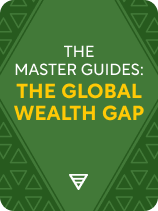

This article is an excerpt from the Shortform book guide to "The Master Guides: The Global Wealth Gap" by Shortform. Shortform has the world's best summaries and analyses of books you should be reading.
Like this article? Sign up for a free trial here.
Why do Protestant nations generally have more wealth? Why did the American South develop more slowly than the North?
It’s no secret that some countries and regions have more wealth than others, but it’s not always obvious why that is. Proponents of cultural theories of inequality argue that three cultural values contribute to whether a nation is rich or poor. These are work ethic, openness to new ideas, and public trust.
Read more to learn about the intriguing connection between culture and economy.
Culture and Economy
Some authors argue that differences between cultures are responsible for international inequality. Culture, they explain, determines the values a nation promotes in its people. When these values are aligned with good economic practices, a nation is more likely to be rich. When they resist good economic practices, a nation is more likely to be poor.
Let’s take a look at the link between culture and economy by examining three cultural values.
Value #1: Work Ethic
Max Weber (The Protestant Ethic and the Spirit of Capitalism) argues the religion Protestantism is conducive to economic success because it encourages hard work, frugality, and smart investment. He notes that, at the time his book was written in the early 20th century, majority Protestant nations like the United Kingdom, Germany, the Netherlands, and the United States tended to be the most successful. On the other hand, economist Thomas Sowell’s Basic Economics argues many nations in tropical climates are poor in part because their cultures lack discipline or urgency—because the climate ensures crops year-round, they never had to plan ahead and store food for winter.
Value #2: Openness to New Ideas
Sowell (Basic Economics) suggests openness to new ideas and cultural exchange is crucial for economic success. Cultures that encourage these values will more readily adopt new technologies, improving efficiency to create more wealth. On the other hand, cultures that are resistant to new ideas or shut themselves off from the world will stagnate and fall behind economically.
For example, plantation owners in the antebellum South resisted industrialization, fearing the new technologies would unseat their place in the social and economic order. This meant the South had far less developed infrastructure than the North for many years and lagged economically because of it.
Value #3: Public Trust
Economist William Easterly’s The White Man’s Burden argues that in a capitalist global economy like the one we have today, public trust is a cultural value crucial for success. Easterly argues that without public trust, people won’t enter into economic exchanges because they’ll fear getting ripped off or cheated. Without these economic exchanges, an economy will stagnate.
Easterly uses the fall of the Soviet Union as an example of why public trust is so important. During this period, free market capitalism was suddenly imposed on the new Russian state with little time for them to adjust. Because there was no opportunity for Russia to develop public trust, politicians and business leaders instead turned to corrupt backroom dealings and allowed the economy as a whole to suffer for their own personal benefit.

———End of Preview———
Like what you just read? Read the rest of the world's best book summary and analysis of Shortform's "The Master Guides: The Global Wealth Gap" at Shortform.
Here's what you'll find in our full The Master Guides: The Global Wealth Gap summary:
- A look into why some nations are poor while others are rich
- What causes the global wealth gap and whether or not it can be closed
- How natural resources often make a nation poor, not rich






